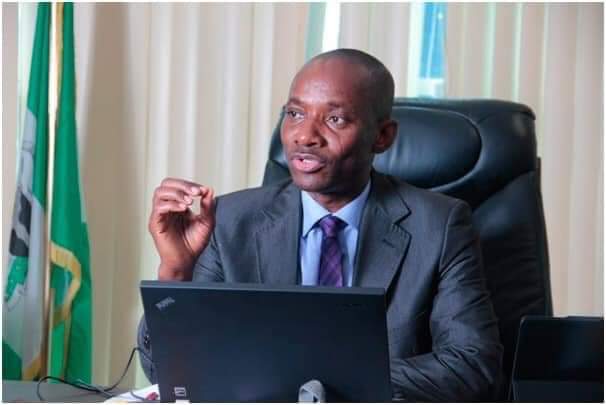By Dr Sam Amadi
A macabre drama is playing out prime time in Nigeria. The thing, though, is that this is not a fictional drama. It is a real event. The Nigerian Correctional Service (formerly Nigerian Prison Service) and the Economic and Financial Crimes Commission (EFCC) are in a meltdown on account of serious allegations of gross corruption. Social media influencer, Martin Vincent Otse, popularly known as ‘VeryDarkMan’, alleged that well-known cross dresser, Bobrisky, who was sentenced to prison for abuse of the naira, didn’t stay in prison during his imprisonment. He allegedly paid N15 million and stayed in a special house outside prison while serving his sentence.
Part of the allegations is that officials of the EFCC collected N15 million to remove proposed charge of money laundering against Bobrisky and charged him with a lighter offence. VeryDarkMan also alleged that leading human rights lawyer, Femi Falana, and his son, musician Falz, were involved in efforts to help Bobrisky stay out of prison wall and secure a presidential pardon. These allegations are in an audio recording purported to be a Bobrisky’s telephone conversation.
The allegations against EFCC and the correction service have triggered executive and parliamentary investigations. The Minister of Interior has directed an investigation into how a prisoner was taken out of the prison to a private house to serve his prison sentence. The Chairman of the EFCC also ordered an investigation into the allegation that EFCC operatives received a bribe from Bobrisky to drop a money laundering charge against him. The Nigerian Senate is not left out. It is conducting a legislative hearing on these allegations.
The allegations from a notorious social media influencer exposed the corruption at the heart of Nigeria’s criminal justice administration. There have been anecdotes and verified reports of gross corruption by officials of the EFCC, the Nigeria Police Force and the correctional service agency. The reported bribery in the case of Bobrisky is not the first time the service has been enmeshed in credible allegations of corruption. Its former Executive Secretary was indicted of gross corruption and removed from office after an administrative adjudication. Every institution of law enforcement in Nigeria has suffered grave loss of credibility because of credible, even if unproven, reports of official corruption like these.
The judiciary is not excluded from institutionalised corruption. The Afrobarometer reports that 75% of Nigerians distrusts the country’s judiciary. A recent report by both the Nigeria Bureau of Statistics (NBS) and the United Nations Office of Drugs and Crime (UNODC) lists the judiciary as receiving the highest amount of bribery in 2023, confirming what former US diplomat, John Campbel, and Matthew Page in their book said that Nigerian judiciary is notorious for taking bribes and awarding judgement to the highest bidder. The UNODC reports that the country’s police was the second-highest bribe-taker in Nigeria. So, it is now official that Nigeria’s law enforcement agencies are very corrupt.
But beyond routine corruption, Bobrisky’s scandal casts distressing light on another side of Nigeria’s corruption problem: elite privilege. Corruption in Nigeria is not just about bribery and official graft. It is about a rigged conception and practice of citizenship. Nigeria does not regard its citizens equally. In Nigeria, some citizens are officially more important than others. In the same vein, some criminals are more important than others.
This is not just a smart turn of phrase. It is an experience that many Nigerians can relate to. I encountered this discriminatory citizenship and privileged criminality early as a Special Adviser to the Senate President, Senator Ken Nnamani. The Senate had requested the Chairman of EFCC to submit the list of governors who were facing investigation for corrupt practices. In the morning, the Chairman gave the Senate President a preview of the list of governors investigated for corruption. When the list was tabled at the plenary of the Senate, an important name was missing from it. Governor Chimaroke Nnamani was a powerful PDP governor who was a close associate of then-President Olusegun Obasanjo. EFCC had credible allegations against him and included him in the long list. But after meeting the President, the Chairman had to scrub off Governor Nnamani’s name.
At the plenary, the Senate President delivered a punchy attack against the establishment. He titled it ‘No criminal is more important than another”. Yes, all criminals should be treated equally as criminals. Maybe it was the Senate President, not the Chairman of EFCC, who did not understand the proper character of the Nigerian state, that, in Nigeria, some criminals are more important than others.
Nigerians who are in the know about how their country works are amused that people are surprised to hear that there is a VIP section of Nigerian prisons where the rich and powerful can stay close enough to their everyday comfort. Those who are shocked do not know their country. Nigeria is a shallow democracy without a republican spirit. The text of the constitution proclaims egalitarianism. But the lived constitution is different. The character and practice of Nigeria’s public administration are imbued with the spirit of neo-feudalism and prerogatives. Neo-patrimony, otherwise known as god-fatherism, defines how the Nigerian institutions work. It works for the big man. The big man could be a cross dresser with strong connection to people in power.
No matter how the legislative inquiry goes (it started badly with Bobrisky disregarding invitation to appear), the real story is not about a young cross dresser who boasted about how he spent his prison term in a private facility instead of a real prison. It is about a Nigerian society that sells everything to the highest bidder, whether it’s electoral justice or criminal justice.
Sam Amadi, PhD, a former Chairman of the Nigerian Electricity Regulatory Commission, is the Director of Abuja School of Social and Political Thought.





